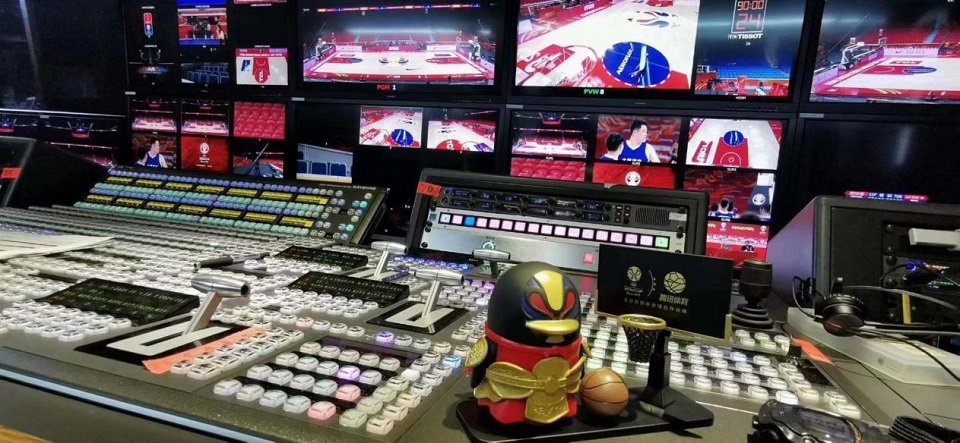The game was over, until it wasn’t. Javier Mojica of Puerto Rico jumped up to shoot a decisive two-pointer with 0.7 seconds left to turn the game all around, securing the win for his side over Iran 83-81 in the opening game of Group C in the FIBA Basketball World Cup here on the first day at FIBA World Cup.

This amazing moment was broadcasting live to every household in China. A man surnamed Zhang, who watched the game in a bar in Beijing, said the incredible last shot has brought him back to an unforgettable game he watched 13 years ago, when guard Wang Shipeng made a 3-point shot at the buzzer and helped China beat Slovenia 78-77 in the last game of group D in FIBA 2006 World Championship.
For audience members who are not present in the court, advanced broadcasting technology is the key to provide them with a satisfying watching experience.
As the Exclusive Official Digital Partner of FIBA World Cup in China, Tencent Sports provides live streaming in Guangzhou for Chinese audience members. It is the first Chinese company to have public signal broadcasting rights for this top-level international sports event. The 2019 FIBA World Cup also marks Tencent Sports’ first time as the main broadcaster to join the manufacturing and broadcasting of all World Cup games in Guangzhou.

To provide Chinese audience members with a superb live streaming experience, Tencent Sports dispatched two 4k/UHD OB vans to transmit the live broadcast to its audience with 22 sets of fast track cameras, 2 microwave cameras and 2 micro-cameras. Among this equipment are 6 fast track cameras, including three 3-time-speed cameras and one ultrahigh-speed camera that can capture video at up to 800 frames per second.
EVS is globally recognized as the most developed company in live video technology for broadcast and new media productions. To provide high-quality slow motion replay in the game, Tencent used four sets of EVS 12 channel production servers, each equipped with high-speed replay service.
All cameras are connected to the replay system and interconnected with a network to achieve the fast transfer of video clips, so that every exciting moment in each game to be replayed immediately.
For audio production and broadcasting, Tencent Sports set up nearly 20 hyper-cardioid microphones around the court, the auditorium and other places. Micro directional microphones were installed on the back side of the basket to collect the sound of the ball’s bounce. Many chip microphones were also posted on the ground. All of this allows audience members watching games at home to be privy to the same excitement as those who are courtside.
The court is also decked out with state-of-the-art cameras. In addition to the rocking shaft cameras and Steadicam cameras that are often seen in sports events, Tencent Sports set up a suite of equipment specifically for TV production and broadcasting. For example, a track camera was installed around the whole basketball court, cameras were placed on the top of the court, and remote-controlled micro-camera was set on the back of the backboard. These specially-positioned cameras can make sure that every brilliant scene in the game, in any corner of the court, can be filmed.
Digital technology is bringing out dramatic changes to the sports industry in China and around the world. At the 2019 FIBA World Cup, one firm’s technological breakthroughs in the field of sports digital production and broadcasting are an example of how technology-driven Internet companies will be a powerful engine of the future development of the sports industry in China.
Company Name: Beijing Qiyuejian Culture & Media Co., Ltd.
Contact Person: Li Qi
Phone: +86 18500458939
mail: molly.li@julytale.com,cn
